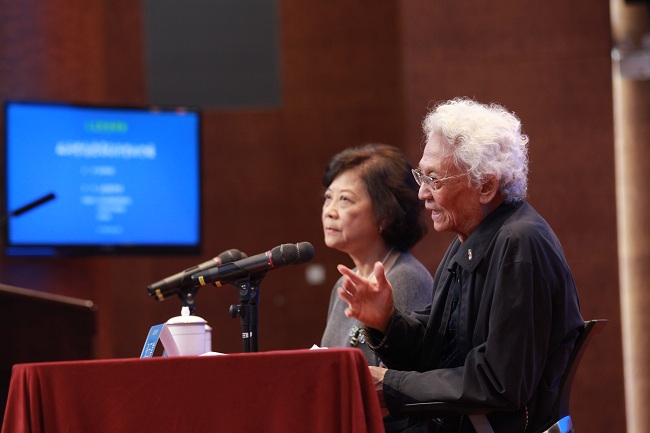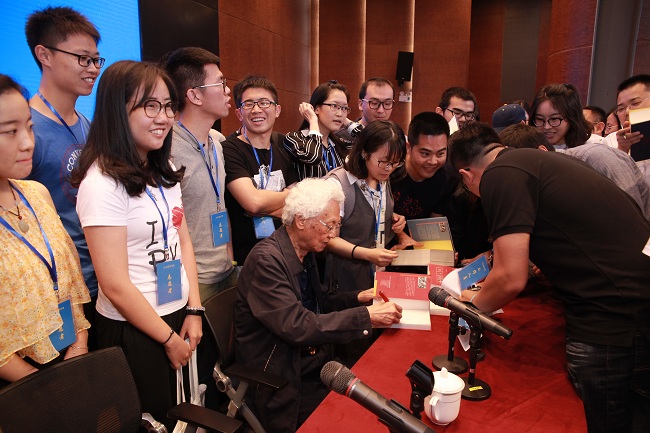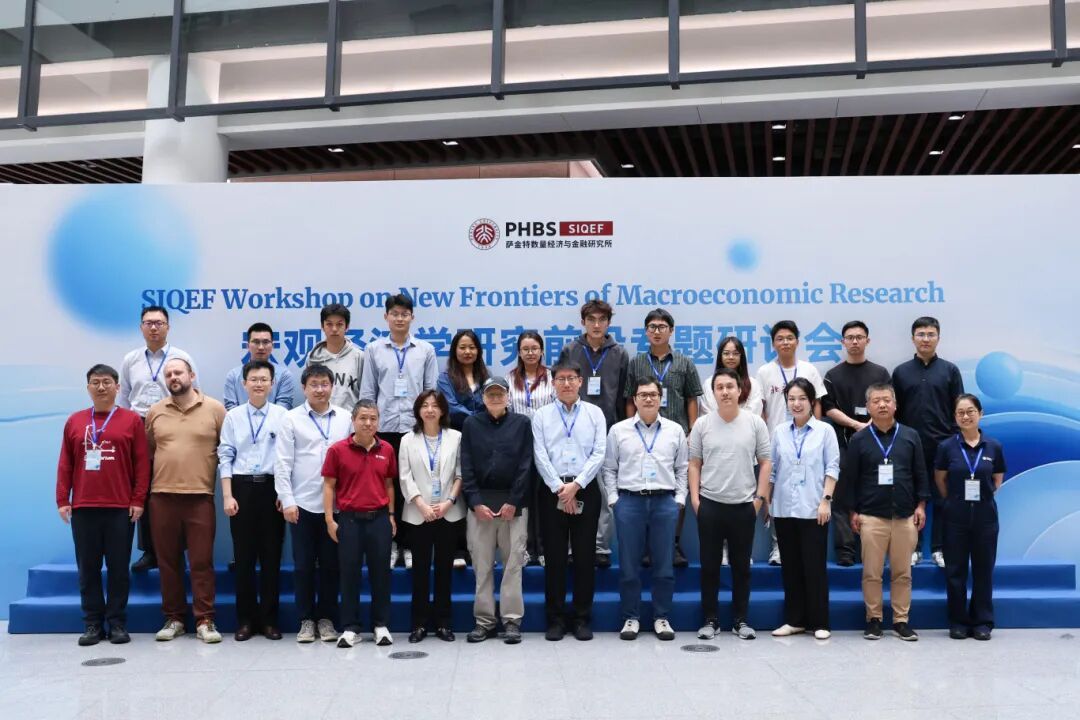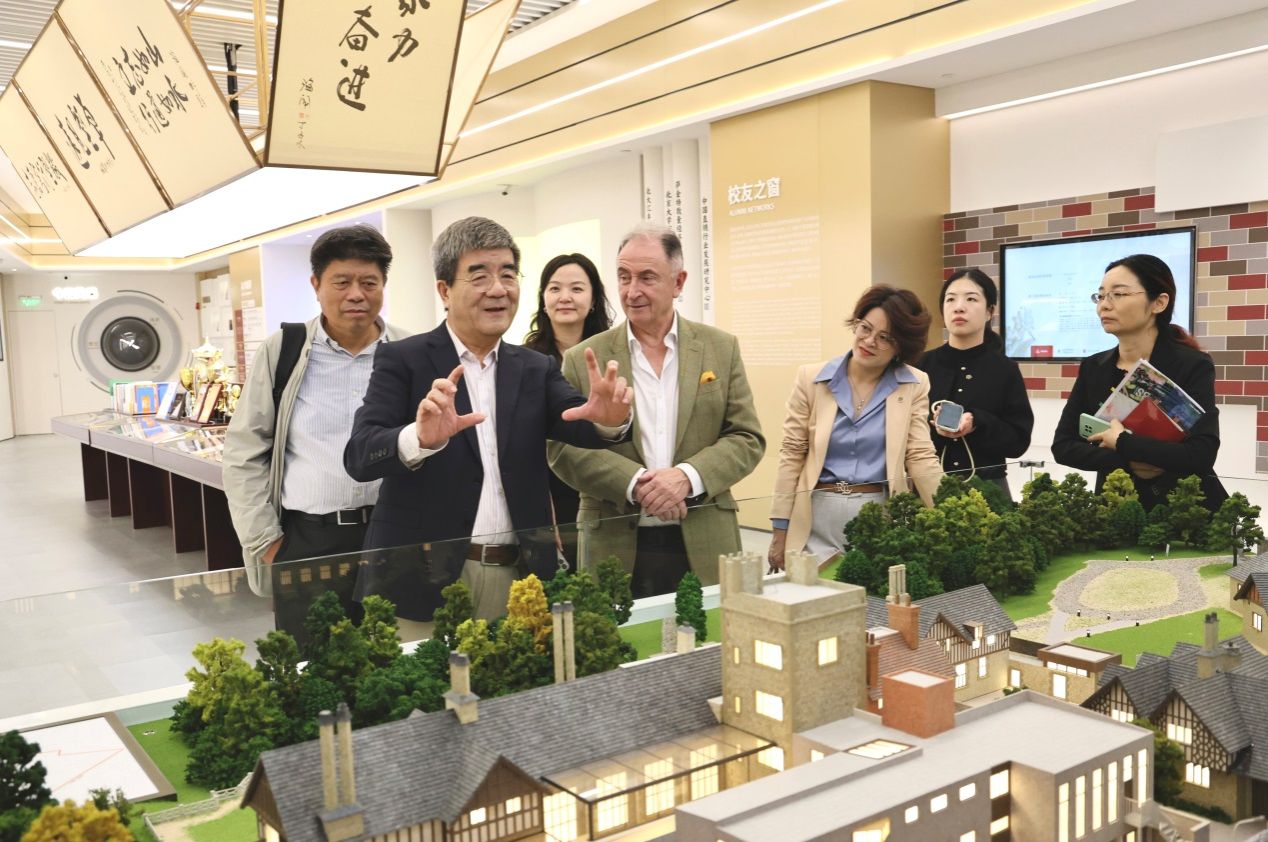An economic lecture entitled “A Scientific Observation of Economic Disasters”, addressed by Prof. Steven N.S Cheung, a prestigious economist, was held on May 20, 2017. The lecture was sponsored by Humanism Economics Society, a private academic institution with the aim to spreading economic knowledge, and co-hosted by National School of Development at Peking University, and Peking University HSBC Business School (PHBS).
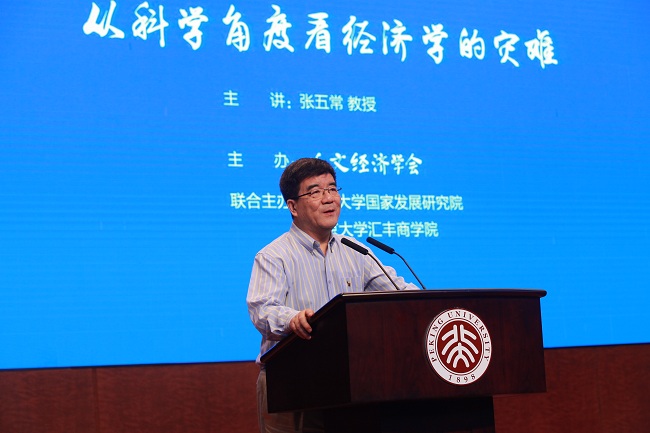
PHBS Dean Hai Wen delivers the opening remarks
Professor Cheung was a Hong Kong born American who specialized in the fields of transaction costs and property rights, following the approach of new institutional economics. He achieved his public fame with an economic analysis on China opening-up policy after 1980s. In his studies of economics, he focused on economic interpretation which was based on real world observation. He was also the first scholar who introduce concepts from the Chicago School of Economics into China.
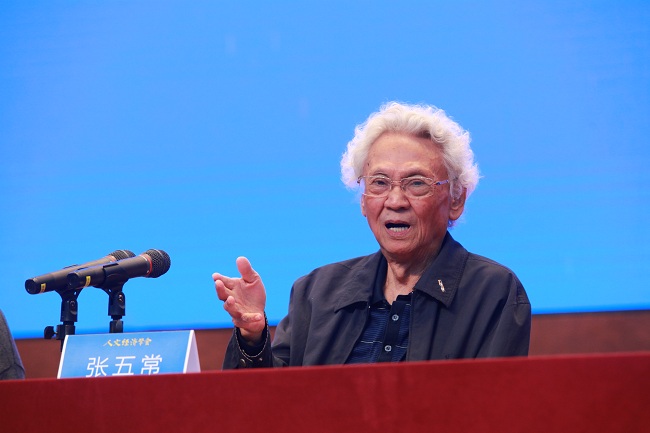
Professor Cheung gives the lecture
Starting his lecture in the waves of applause, this 81- year-old scholar said that he took 57 years studying intensively in economics, which was out of his personal interests. In recent years, he has been revising
Economic Interpretation, one of his representative works. The fifth chapter has now been added as the final chapter.
The origin of economic disaster: being disjointed from the outside world
“If there is no verification for economic theories, then those theories are nothing,” said Cheung. He emphasized the importance of practicability of economic theories, “there are so many gorgeous theories in economics, but none of them get verified. Without verification, those specious economic theories can’t be used for interpretation, thus they are useless, disjointed from the outside world.” In Cheung’s concern, economics is various in standpoints as well as applications, but each of them should be supported by realistic basis.
“Demand Curve is anything but economist’s hypothesis, no one can find out the verification for this curve.” He also criticized the relationship between price fluctuation and quantity demand to be “castle in the air”, and further argued that “price fluctuation is real date extracted from people’s daily life, but quantity demand is a hypothetical concept. This relationship couldn’t be verified, so it’s merely an academic term.”
Cheung held that academic writing should be based on real data and tested against verification. “That’s the reason why I worked on
The Theory of Share Tenancy,
The Fable of the Bees and
China’s Economic System. Without verification, economics is nothing.” Meanwhile, he encouraged students to write papers out of their own interests, rather than for degree or qualification.
The significance of economics:interpretation
When Cheung returned to mainland, China, he wrote such influential papers as
The Orange Sellers Said and
China’s Economic System. In the year 1981, he wrote a book, which was latter named
Will China Go Capitalist by Thatcher Office and was published in 1982. He held that China would practice market economy, that was “ an interpretation”, meanwhile, also a “deduction”.
Said Cheung, “for instance, universal gravitation is a deduction, and an interpretation. Natural Science is rational and definitional; it could be deducted, as well as interpreted. It could be proven by the same methods in economics.”
He gave a simple case to explain this viewpoint: supposing a banknote in 100 Yuan denomination was placed on the sidewalk, it was easily to deduce that the cash would be missed. The reasons were as following:
Firstly, according to law of demand, quantity demand would raise when price fall. If there were no policeman, this banknote would be missed much sooner.
Secondly, cost is the highest-valued option forgone:if the passer-by was rushing to date with his girlfriend, then picking the banknote would waste his cost.
Thirdly, the bigger denomination the banknote is, the more popular it would be.
Cheung explained this case in three axioms, which were said to“ explain and interpret all human behaviors”. He encouraged fundamental law teaching in universities and proposed that theory teaching should be dynamically integrated with its application.
Writing longstanding papers is my pursuit
Cheung asserted that his pursuit to be nothing but great papers which could “live for centuries”. He said that a great academic paper is much more important than fame or title. Out of this purpose, a person needs to be rigorous in doing research. “Long-live papers should be creative in thoughts, objective in theories and attractive in wording,” he said, “ papers conveys your standpoints, once you submit the paper, you should not respond to the contradicts or criticism about it. That’s it.”
Up to now, Cheung has published many influential papers and publications, including
The Theory of Share Tenancy,
The Fable of the Bees, and
China’s Economic System, etc. He joked about his luck of two writing peaks, the former was in the year 1967, in which he wrote
The Theory of Share Tenancy based on his turbulent famine experience and precious rural work experience in Guangxi Province, the later was that in the year 2017, he revised
Economic Interpretation, added a fifth chapter to renew the book. His rural work and life experience, especially in data collection.
His supervisor, Professor Armen Albert Alchian, the founder of Modern Property Economics, amazed about the eighth chapter of
The Theory of Share Tenancy and invited him to spread this theory to other countries. “The rural experience of Guangxi Province is not suitable for other countries,” Cheung shook his head, “it’s merely appropriate for China’s own fundamental realities.”
Writing a paper is anything but data stuffing
“There are so many labs for biology research, physics research and chemistry research, but there’s no such a laboratory for economic research.” Said Cheung, “Economic research calls for its own laboratory, and the outside world is exactly the one.” He recommended the audience to read about Professor Marshall’s papers, because Marshall was a real doer, an economist of action. He also admired Professor Ronald H. Coase, who was the founder of neoinstitutional economics, Nobel Laureate in Economics and his supervisor.
Q&A
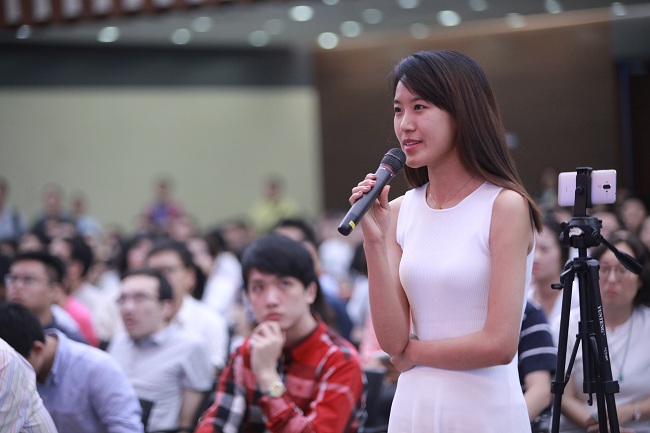
audience raise questions
During the Q&A session, Cheung answered several questions from the audience, including China’s housing price, and its economic situation compared with the USA, etc. He argued that as far as he was concerned, housing price in mainland China would not drop, “that was some kind of absolutely”. Furthermore, supported by the rapid developing manufacturing industry and surging medicare, technological products, Shenzhen would someday surpass the Silicon Valley, that was the reason why “housing price in Shenzhen would barely see the drop”.Cheung also highly praised such business genius in mainland China as Jack Ma, Dick Wang, etc. He said, “Market development is much easier to achieve in mainland China for its grand market and customers’ base.”
Book signing after the lecture
Serving as one of the most promising Nobel Prize candidates, Steven N.S Cheung has always been sparing no efforts in his economics study. His insightful address about a scientific observation of economic disasters also brought the audience brand new perspectives as well as inspiration on the application of economic theories, paper-writing and economics researching.
By Sophie Wu
Edited by Annie Jin







